Session II: Practical Challenges and Implementations
Session 2
(1:50 pm - 4:00 pm EDT)
Moderator:
Quincy Byrdsong, EdD, CIP, CCRP
Vice Provost for Health Affairs, Lipscomb University
Read Biography
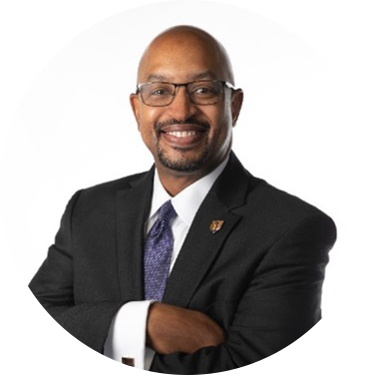
Dr. Quincy J. Byrdsong is the Vice Provost for Health Affairs at Lipscomb University in Nashville, Tennessee. He has operational responsibility for Lipscomb Health to include programs in pharmacy, physician assistant, nursing, dietetics, exercise science, and cardiovascular perfusion. Before coming to Lipscomb, Dr. Byrdsong served as the Associate Vice President for Research Administration at Wellstar Health System in Marietta, Georgia. In this role, Dr. Byrdsong served as the Institutional Official for the Human Research Protections Program (HRPP) and Chief Research Administration Officer.
Dr. Byrdsong received his Bachelor and Master’s Degrees in Biology from Middle Tennessee State University and Doctor of Education degree from Tennessee State University. He speaks to global audiences in the areas of research regulations as well as research ethics. Dr. Byrdsong is a past President of the Society of Clinical Research Associates (SOCRA) and a Member of the Board of Directors for the Association for the Accreditation of Human Research Protections Programs (AAHRPP).
Are payments all the same and should we always offer the same payment to participants in the same study?
Should we distinguish the context under which research participants are paid even though this may just be a matter of semantics to them? This presentation explores whether context matters and whether offering everyone in a study the same payment really promotes justice. The presentation will also explore if a distinction in the context might help investigators and IRBs decide on the most appropriate payment.
Speaker: David Borasky, MPH
Vice President, IRB Compliance, WCG IRB
Read Biography
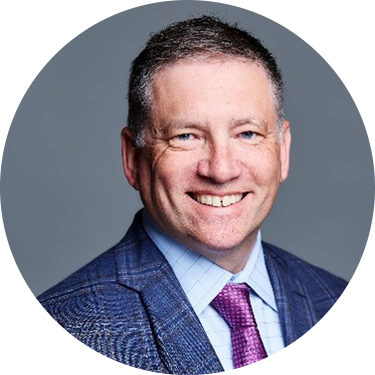
David Borasky, MPH serves as Vice President of IRB Compliance with WCG Clinical. In this position he is responsible for leading quality and compliance efforts for WCG IRB. He has over 25 years of experience managing institutional review boards in a variety of settings including research institutes, global health organizations, academic medical center and independent IRB organizations. He has served as a consultant for the Office of Human Research Protections, the US Department of Energy, the World Health Organization and numerous other institutions. David is a former member of the PRIM&R Board of Directors and in 2018 was named a Distinguished Leader of PRIM&R. He currently serves as Co-Chair of the Subpart A Subcommittee of the HHS Secretary’s Advisory Committee on Human Research Protections.
Addressing the financial burden of clinical research participation
Are there hidden financial burdens of clinical research participation that IRBs should consider? Is this consideration solely an IRB responsibility? Are there individuals in addition to participants, such as family members, who may bear the financial burden of clinical research participation? This presentation will explore the practical considerations for IRBs to contemplate regarding the financial burden for participants.
Speaker: Ivy R. Tillman, MS, CCRC, CIP
Director of Research Operations, Mayo Clinic
Read Biography
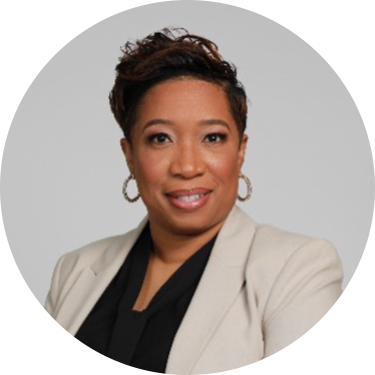
Ivy Tillman is Director of Research Operations at Mayo Clinic. She earned her Bachelor of Arts degrees in Biology and French from Clemson University, a Master of Science in Health Care Management from Troy University and is currently pursuing her EdD in Educational Innovation at Augusta University. Ivy has been involved with human research protections for 17 years and is passionate about research participants' perspectives and justice in human research.
The logistics of how we pay people for research participation – Equity considerations
Institutions’ and governmental approaches to payment may discourage participation of the very groups they’re trying to involve in research. For example, the requirement that institutions collect Social Security numbers (SSNs) or other tax documents in order to issue study-related payments introduces concerns for privacy and may discourage participation. In addition, issuing study payments in the form of a check could create problems for people without a checking account. These practices discourage members of historically disenfranchised groups from engaging in research and beg the question of what could be done to remove these barriers.
Speaker: Christine Ritchie, MD, MSPH
Professor of Medicine, Harvard Medical School and Director, Mass General Hospital
Mongan Institute Center for Aging and Serious Illness
Read Biography
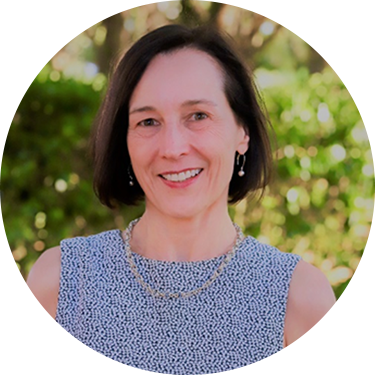
Christine Ritchie, MD, MSPH, is Professor of Medicine at Harvard Medical School, the Kenneth L. Minaker Chair in Geriatrics in the Division of Palliative Care and Geriatric Medicine at Massachusetts General Hospital (MGH), and the Director of the Mongan Institute Center for Aging and Serious Illness. She is a board-certified geriatrician, palliative care physician and health services researcher who conducts research focused on optimizing quality of life for those with chronic serious illness, with a particular focus on those living with multiple chronic conditions and those living with dementia, along with their care partners.
Paying for participating in social-behavioral studies – practical and ethical considerations
Paying people to participate in social-behavioral research is a very common practice. However, because of the sensitivity of the research area, the uniqueness of some of the research participants, the need to include anonymous participants, and the diverse ways that research data are collected, paying people in SBER studies create some of their own challenges. This presentation will explore the practical and ethical considerations for paying participants in SBER.
Speaker: Celia B. Fisher, PhD
Marie Ward Doty University Chair in Ethics, Professor of Psychology, Director, Center for Ethics Education and the HIV/Drug Abuse Prevention Research Ethics Institute, Fordham University
Read Biography

Celia B. Fisher, Ph.D. is the Marie Ward Doty University Chair in Ethics, Professor of Psychology and the founding Director of the Fordham University Center for Ethics Education and the NIDA funded HIV and Drug Abuse Prevention Research Ethics Institute. She has chaired numerous ethics committees including for the American Psychological Association, the Society for Research in Child Development, and the American Public Health Association and served as a member of numerous federal and NIH committees including SACHRP, the NIH ABCD and the HEALing Communities studies, and chaired the Environmental Protection Agency’s Human Studies Review Board. She is the author of Decoding the Ethics Code: A Practical Guide for Psychologists now in its 5th edition, has over 300 publications and 8 edited volumes on the rights and welfare of racial and sexual and gender minority children and adults and her research has been supported by NIDA, NICHD, NIAID, NIAAA, NIMHD, and NSF. She is a Fellow of the American Association for the Advancement of Science. Her awards include the Lifetime Achievement Award for Excellence in Human Research Protections and the America Psychological Association Award for Outstanding Contributions to Ethics Education.
It’s not all about the Benjamins– other hurdles presented by research participation, and why payment won’t resolve them
Payment for research is often sold as the silver bullet to address imbalanced participation in clinical trials. Is lack of payment for research participation the only reason clinical trials are not ethnically, racially, and socioeconomically diverse? What role do logistical burdens that research studies present play? How does the way people think about clinical trials factor into participation decisions? How can decentralized trials and public education on research participation address issues with diversity and inclusion?
Speaker: C.K. Wang, MD
Chief Medical Officer, COTA, Inc.
Read Biography
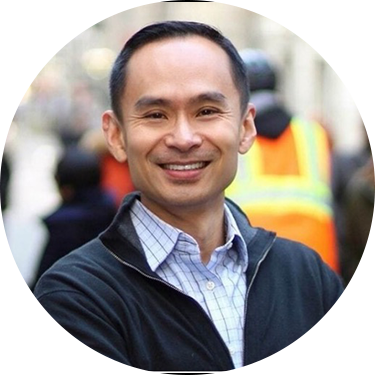
C.K. Wang is a board-certified medical oncologist and the Chief Medical Officer at COTA, Inc. As CMO, he oversees the medical and research functions of COTA and is an expert in cancer care delivery, real-world data/ evidence and equity/ diversity issues in clinical trial research. Prior to COTA, Dr. Wang held numerous leadership roles at IBM Watson Health and the USMD Cancer Center.
Panel Discussion (3:15 pm - 4:00 pm, 45 mins)
Includes special guest, Jill Feldman
Lung Cancer Patient and Advocate, Co-founder EGFR Resisters

